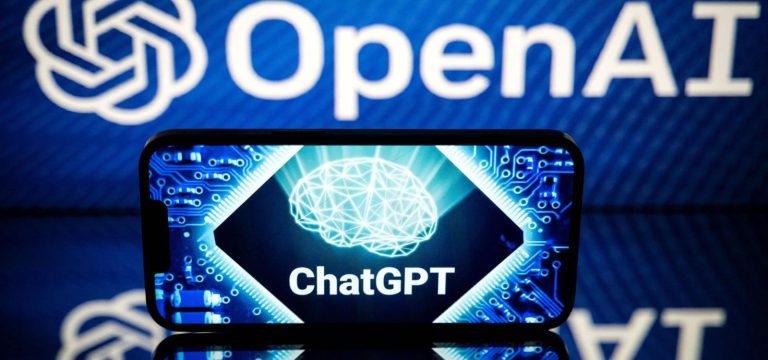Predicting the future is a job in itself with pundits, futurists, scientists and engineers constantly sharing their thoughts about the future. This work has incredible implications for society – whether the predictions show up or not.
For example, take a look at just one survey of the future: the 1970 McGraw-Hill study of technological breakthroughs. As expected, the experts had hits and misses.
They are correct regarding technologies that were understood and gaining adoption at the time of the survey, such as the expanding use of plastics in various applications, the widespread use of electronics in patient monitoring, electric vehicles, and the use of computers in business. The more complex the technology under consideration, the less accurate the predictions are. For example, there was no widespread adoption of 3D televisions by 1980, cancer treatments by 1990, automated vehicles by 2000, and no cashless society by 2010.
What are ready meals? Predicting the future of technology is often an extrapolation of past and current technology trends; However, forecasters cannot know everything, and will miss game-changing technologies and their implications. For example, while survey respondents expected computers to become widespread in business and manufacturing, they underestimated Gordon Moore's predictions in 1965, and how Moore's Law put computers in the hands of billions of people around the world.
Predicting the future of technology is much more difficult today than it was half a century ago. With so much change and convergence happening so quickly, How can anyone predicting the future of technology today predict when it will change the rules of the game and disrupt industries and our way of life?
Just consider the impact of ChatGPT's release and rapid scale-up, which has transformed the worldview of almost everyone except a small number of workers who have ever experienced generative AI. As Bill Gates reminded us in the early days of personal computing, the software industry was very small. Today it is a dynamic global giant that is turning its attention to artificial intelligence, so innovations will come much faster.[i] Therefore, it is reasonable to expect that watershed technologies such as ChatGPT will emerge more quickly. So what can we do?
The United States must prepare for waves of change, disruption, and opportunity.
Rapid technological change isn't just happening with generative AI, of course. The bioeconomy is growing almost as fast, with thousands of laboratories using CRISPR gene-editing technology to amplify the potential of biotechnology, and synthetic biology developing rapidly. Digital technologies continue to expand across many physical, virtual, social and personal domains. Automation is accelerating, and automated vehicles are taking over the streets. We are on the cusp of several new eras: the era of clean nuclear energy; Quantum era; A new space age; And so on – everyone is converging and creating unprecedented feedback loops between one and another.
How can we gain a competitive advantage without knowing that technological disruption is just around the corner?
First, we must enhance our ability to predict through greater collaboration and communication, greater use of technology and modern, flexible business models. Second, we must build a more adaptive and resilient innovation ecosystem that responds to waves of technological change by preparing our best technologies, talent and infrastructure to ride the waves rather than drown in them. The following recommendations – think of them as a diagram of the innovation blueprint – That would be a good start:
- Create channels from the research community for rapid transfer of research and development (R&D) results and new technology across industry.
- Frequently review national R&D and technology plans, programs and policies. Create on-ramps to quickly focus on emerging opportunities and off-ramps when technical trajectories change. But we must also persevere in basic research to push the boundaries of science and technology to allow us to create a new future.
- The regulatory system must act quickly. For example, multiple versions of ChatGPT and the generative video model Runway have been released by mid-2023.[ii] The Biden administration's executive order on artificial intelligence was issued in October 2023, but it will take time to budget for new efforts. Congress has not passed AI regulatory legislation. States are moving faster, but they will likely create a patchwork of burdensome and costly rules that businesses must adhere to. Meanwhile, the European Union is setting its own rules.
- We need new types of infrastructure to enable more people to participate in thinking, designing and developing products. In addition, we must address the growing demand for computing power consumed by AI and its thirst for data for training.
- Our technology centers must be ready to rapidly mobilize diverse assets – talent, research and technology, capital, business capabilities, entrepreneurs and start-ups – to leverage new technologies faster.
- Universities and training providers must produce skills at scale as new technologies expand, and facilitate transitions for those displaced by disruption and change.
- We must remember that markets are often faster and more efficient than government plans at reallocating resources to quickly unlock opportunities. We must work to reduce the costs of market entry, new business creation, and creative destruction needed to take full advantage of technological disruption.
More than ever, our competitiveness and future prosperity depend on the timeliness and efficiency with which we allocate and reallocate our productive resources to take advantage of a torrent of new technological opportunities. Improving the innovation ecosystem in terms of speed and scale is what we need to focus on. The above recommendations would do just that by reducing friction and stimulating innovation. What ideas would you add to the mix?
[i] The era of artificial intelligence has begun, GatesNotes, Bill Gates blog, March 21, 2023.
[ii] Generative AI Predictions for 2024, CB Insights, 2024.
Follow me Twitter Or LinkedIn. paying off My website.

